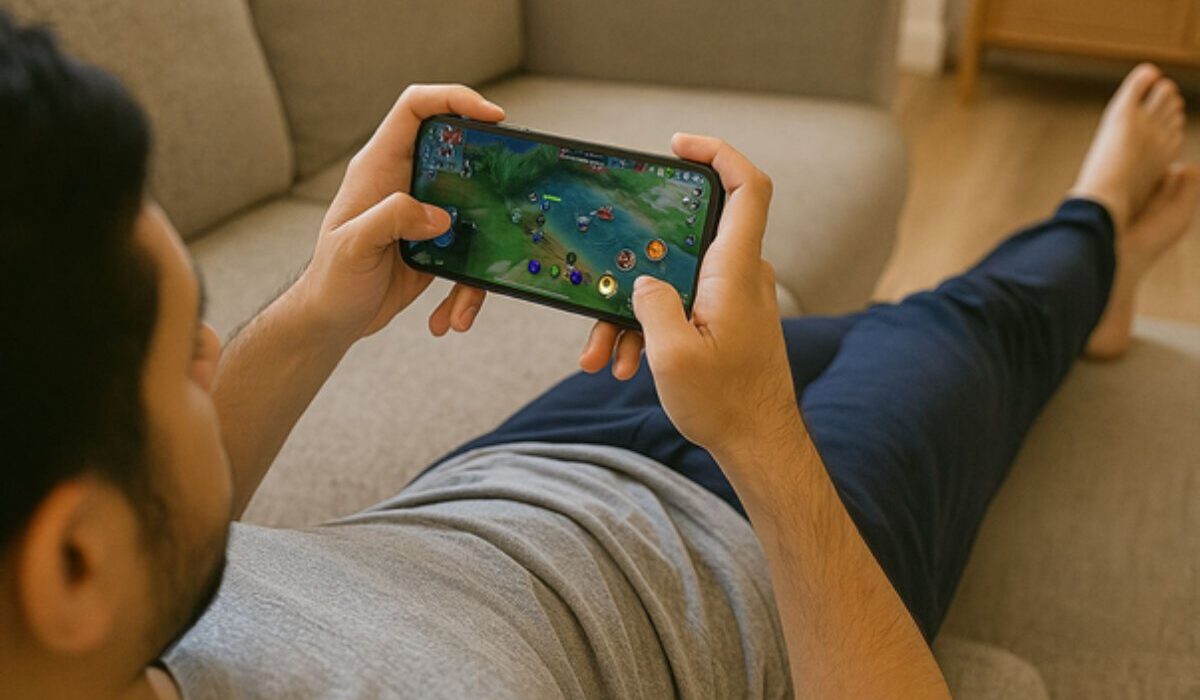Online gaming has evolved far beyond simple entertainment into an activity with surprising wellness benefits when approached mindfully. While excessive gaming can be problematic, balanced gaming experiences can contribute positively to various aspects of your life. Here’s how online gaming can be integrated as a healthy component of your lifestyle:
-
Stress Relief and Mental Relaxation
After a demanding day, immersing yourself in a game world provides genuine psychological benefits. Gaming creates a structured environment where you can temporarily set aside real-world stressors and engage in enjoyable problem-solving. This mental shift helps activate your parasympathetic nervous system—your body’s natural relaxation response. Unlike passive stress relief like watching TV, gaming demands active participation, which can create a state of “flow” where you’re pleasantly absorbed in the moment. Many players report significant mood improvements following moderate gaming sessions, with research suggesting that certain games can reduce cortisol levels. The key is mindfulness about when and why you’re gaming—using it intentionally as a relaxation tool rather than an escape. When approached this way, gaming offers a healthy mental reset comparable to other leisure activities.
-
Cognitive Skills Development Through Strategic Games
Card games like free rummy games particularly shine in boosting cognitive abilities. These strategic games require players to constantly evaluate possibilities, remember card distributions, and adapt to changing circumstances—skills that transfer remarkably well to everyday decision-making. Regular engagement with such games has been linked to improvements in working memory, information processing speed, and enhanced concentration abilities. What makes free rummy games especially beneficial is their balance of accessibility and depth—they’re quick to learn but offer layers of strategy that develop over time. Unlike more passive entertainment, these games demand active mental engagement, creating the kind of beneficial cognitive challenge that neuroscientists recommend for maintaining brain plasticity throughout life. Players often report feeling mentally sharper after sessions that require strategic thinking, pattern recognition, and adaptability—precisely the mental muscles needed for real-world problem-solving.
-
Social Connection in Digital Spaces
Online gaming provides meaningful social interaction, especially valuable during periods when in-person connection is difficult. Through team-based games and gaming communities, players develop relationships that often transcend the digital environment. These connections offer authentic social support despite physical distance. Research indicates that gamers who play cooperatively with friends experience increased feelings of belonging and decreased feelings of isolation. Gaming provides shared experiences and challenges that create bonds through mutual achievement and overcoming obstacles together. For many, especially those who struggle with traditional social settings, gaming communities offer a low-pressure environment to develop communication skills, build friendships, and experience teamwork. These digital friendships frequently develop depth comparable to in-person relationships, with many gamers reporting that their online connections provide genuine emotional support during difficult times.
-
Developing Resilience Through Constructive Failure
Unlike many activities in modern life where failure is heavily stigmatized, games are uniquely designed around the concept of “productive failure.” Games create safe spaces where trying, failing, learning, and improving become a natural cycle. This process builds psychological resilience—the ability to bounce back from setbacks—that transfers to real-world challenges. When players encounter in-game obstacles, they naturally develop problem-solving strategies, persistence, and emotional regulation. Studies show that gamers often display higher frustration tolerance in non-gaming tasks compared to non-gamers. This resilience development occurs because games provide immediate feedback, clear goals, and the opportunity to immediately apply lessons learned from failures. The controlled challenge environment of games allows players to experience setbacks without severe consequences, training the mind to view obstacles as temporary and solvable rather than permanent or threatening.
-
Structured Goal Setting and Achievement
Well-designed games offer fantastically crafted progression systems that satisfy our psychological need for accomplishment. Unlike most real-world goals that take years or months to accomplish, games offer definite goals and regular feedback on advancement, creating a feeling of accomplishment that drives confidence and motivation. This accomplishment-based arrangement teaches great lessons in incremental advancement and perseverance. Players are taught to analyze big goals into possible steps, revise plans when there are impediments, and stay encouraged by difficulties—skills which directly translate to workplace and personal growth. Additionally, the sense of fulfillment gained by in-game accomplishment can be mental momentum that transfers into other aspects of life. Numerous players say they gain confidence boosts from accomplishing hard game sequences that help them approach hard real-life tasks with more drive and optimism.
-
Creative Expression in Virtual Worlds
Many modern games offer remarkable creative outlets through character customization, world-building features, and player-driven narratives. These creative aspects allow for self-expression in ways that are sometimes unavailable in everyday life. Whether designing virtual living spaces, crafting unique character appearances, or solving problems with innovative approaches, players engage in creative thinking that strengthens imagination and problem-solving abilities. This creative engagement often sparks curiosity that extends beyond games into traditional creative pursuits. The freedom to experiment without real-world consequences encourages risk-taking and novel thinking. Additionally, many game communities celebrate and share creative achievements, providing positive reinforcement for creative expression. For individuals with limited access to traditional creative tools or spaces, gaming offers an accessible alternative requiring minimal resources while developing transferable creative thinking skills.
-
Mindfulness and Present-Moment Awareness
Though seemingly counterintuitive, gaming can actually promote mindfulness—full attention to the present moment. When fully engaged in gameplay, players naturally practice focusing completely on immediate tasks rather than worrying about past or future concerns. This immersive attention creates a meditative-like state where the mind rests from rumination. Games demand our complete cognitive presence, temporarily quieting the mental chatter that contributes to anxiety and stress. Players often report losing track of time—not from mindless distraction but from complete engagement. This state resembles what psychologists call “flow”—characterized by deep concentration, intrinsic enjoyment, and temporary suspension of self-consciousness. Regular experiences of this flow state through gaming can teach the brain what focused attention feels like, potentially making mindfulness more accessible in other contexts.
Conclusion
When practiced in balance and consideration, online gaming has unsuspected dividends extending far beyond recreation. With careful integration of gaming into your life—setting healthy time boundaries, choosing games to create a positive experience, and being respectful of reasons for playing—those dividends are possible while avoiding potential negativities. The key is conscious participation: gaming as one part of an overall quality of life and not an avoidance of life itself. By approaching gaming this way, you transform what some might dismiss as merely “play” into a genuinely beneficial activity that contributes to your overall well-being in today’s digital world.


